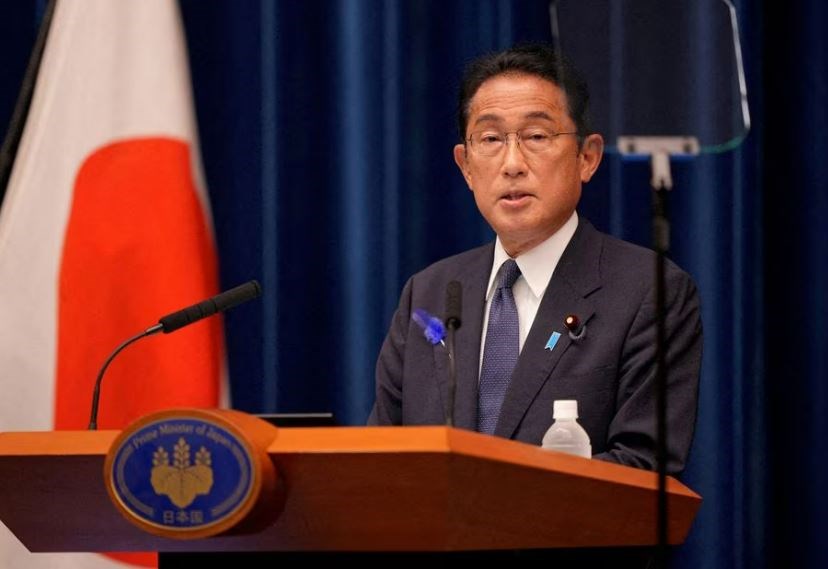Japan PM heads to Seoul amid public resentment
The two-day visit, which will begin on Sunday, will be a Japanese leader's first official visit to Seoul in more than ten years.
-

Japan's Prime Minister Fumio Kishida delivers a speech at his official residence in Tokyo, Japan July 14, 2022. (Reuters)
Japanese Prime Minister Fumio Kishida will visit Seoul by the end of this week as the two countries seek to boost their relationship in order to counter alleged DPRK threats.
The two-day visit, which will begin on Sunday, will be a Japanese leader's first official visit to Seoul in more than ten years.
Kishida will reportedly meet with President Yoon Suk Yeol -- who has prioritized resuming ties -- just weeks after the South Korean leader visited Tokyo in March.
Yoon has also just finished a state visit to Washington, where he met with President Joe Biden and inked an accord aimed at boosting the nuclear protection afforded to South Korea by the United States.
Relations between Seoul and Tokyo -- both key regional US security allies -- have long been severed over Japan's 1910-45 colonial occupation of the Korean peninsula, including the imposition of forced labor and sexual slavery.
Read next: Seoul to compensate Japan's forced labor victims, latter slam plan
It is worth noting that Washington has exerted strained efforts to bring the countries together to solidify their alliance against DPRK, which they identified as a mutual "threat".
The United States and South Korea have, in turn, been boosting their defense cooperation, staging a series of major military exercises including two trilateral drills involving Japan this year.
But they are soldiering to do more. At their summit last month, Biden and Yoon announced the Washington Declaration, which bolsters the US nuclear umbrella over South Korea, and they vowed to speed up trilateral cooperation with Japan.
DPRK considers all such cooperation as "absolutely identical with a dangerous war plot," as per a commentary carried by the country's official KCNA news agency.
'Short-lived' rapprochement
This week, the Japanese Prime Minister claimed that his visit to Seoul would "give momentum to shuttle diplomacy'" between the neighbors.
During their March summit in Tokyo, Kishida and Yoon approved ending tit-for-tat trade curbs and resuming mutual visits, with Kishida also inviting the South Korean President to a G7 meeting in Hiroshima this month.
"The exchange of summits, first in Japan and now in Korea, is meant to signify the turbulence of the recent past is behind South Korea and Japan," Benjamin A. Engel, research professor at the Institute of International Affairs at Seoul National University, said as quoted by AFP.
When South Korea's Supreme Court ordered Japanese companies to make up for the victims of forced labor during the Second World War, the already strained relations between the two nations further deteriorated in 2018.
But in March this year, Seoul declared a plan to pay those impacted without Tokyo's direct involvement -- a move that angered much of the South Korean public.
A Gallup Korea poll released in the same month illustrated that nearly 60% of respondents were opposed to the government's proposal.
As long as general sentiment in South Korea stays sour toward Japan, the current diplomatic bonhomie risks being "short-lived", added Engel.
"The success of the visit will be measured by how there will be regular meetings and engagement between the two countries at the leadership level," Shihoko Goto, deputy director of the Asia Program at the Wilson Center in Washington, said as quoted by AFP.
"The challenge will be whether public opinion in both countries will support such overtures," Goto added.
Read more: S.Koreans reject Seoul compensation for wartime Japanese forced labor

 4 Min Read
4 Min Read








